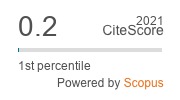Value Engineering Strategies for Cost Optimization in Government-Funded Road Construction Projects
Abstract
Government-funded road construction projects in the United States face persistent challenges of cost overruns and inefficiencies, necessitating innovative approaches to optimize resources. This study examines value engineering (VE) strategies for cost optimization in Texas road projects, employing a mixed-methods design. A survey of 200 professionals ranked VE strategies using the Relative Importance Index (RII), while case studies of two projects—a highway expansion and an urban road rehabilitation—provided practical insights. Findings indicate that lifecycle cost analysis (RII = 0.776) is the most effective strategy, followed by construction method innovation (RII = 0.752) and design optimization (RII = 0.736). Case studies demonstrated savings of 7–11.5% through strategies like reclaimed asphalt use and precast panels, though challenges included contractor resistance and coordination issues. The study proposes a tailored VE framework emphasizing early implementation, training, and collaboration to enhance cost-effectiveness while maintaining quality and sustainability. These findings offer actionable guidance for policymakers and engineers, contributing to efficient infrastructure delivery in public-sector projects.




